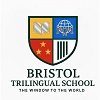BRISTOL CURRICULUM
Educational Levels
Bristol Trilingual School operates an English Program in accordance with the laws and regulations of the Ministry of Education. The school aims to be a progressive institution committed to implementing the Basic Education Core Curriculum of B.E. 2557 (2014). The education is divided into 2 levels as follows:
• Early Childhood Education: K1 to K3
• Primary Education: Grade 1 to Grade 6

1.1 Kindergarten 1 -3
1.2 Primary Level (Gl-G6)
The beginning level of compulsory education
which is emphasizing basic skills in reading, writing, and calculation, basic
thinking skill, communication, social learning process, and basic human being,
life quality development with completeness and balance in physically,
intellectually, mentally, socially, and culturally with an emphasis on
integrated learning management.
Strands of learning
We assign learning strands according to the curriculum which consists of knowledge management, learning skill, and students’ characteristics as follow:
2. Learning Area of Thai Language
The curriculum is meticulously designed to enhance students’ competencies in listening, speaking, reading, and writing in the Thai language. It further aims to cultivate a profound understanding and respect for Thai culture, traditions, local heritage, and literature. Students are expected to apply the acquired knowledge appropriately within Thai society and in everyday life.
2.1 Learning Area of Mathematics
The learning activities are structured to advance students’ proficiency in numerical computation, logical reasoning, and problem-solving, utilizing innovative tools and contemporary technological resources. Emphasis is placed on experiential and inquiry-based pedagogies to fully realize each learner’s mathematical potential. The objectives include:
• Comprehension of diverse numerical concepts and their practical applications
• Articulation of mathematical ideas with clarity
• Ability to analyze and resolve problems with sound reasoning
• Initiative and competence in collaboration and communication in both Thai and English
2.2 Learning Area of Science and Technology
The program fosters inquisitiveness and analytical acumen by integrating scientific inquiry, research methodologies, experimentation, and effective communication of results. Students are encouraged to develop critical scientific thinking, sound judgment, and ethical awareness to apply their knowledge responsibly in real-world contexts.
2.3 Learning Area of Social Studies, Religion, and Culture
Learning activities are designed to impart
knowledge and nurture skills that promote critical thinking and responsible
citizenship. Through systematic academic instruction, students are equipped to
apply their learning effectively in practical situations. This domain instills
values essential to democracy and personal integrity, including responsibility,
self-reliance, loyalty, honesty, discipline, gratitude, self-sufficiency,
respect for others’ rights, nationalism, environmental stewardship, cultural preservation,
and commitment to religious and constitutional principles.
2.4 Learning Area of Health and Physical Education
Students engage in comprehensive health education that emphasizes the promotion of well-being and sustainable quality of life at individual, family, and community levels. This area supports the development of positive health-related attitudes, ethics, and practices. Physical education focuses on physical activities, exercise, sportsmanship, and skill development, fostering holistic growth encompassing physical, mental, emotional, social, and intellectual dimensions.
2.5 Learning Area of Arts
The arts curriculum is dedicated to encouraging creative thinking, imagination, and self-expression. Students are provided opportunities to explore and create artistic works inspired by nature, cultural heritage, and diverse artistic traditions at local, national, and international levels. The music program encompasses Thai classical, traditional, and international music, delivered through an integrated and culturally respectful approach
2.6 Learning Area of Career and Technology
This domain emphasizes the comprehensive development of students’ understanding of vocational and technological factors relevant to life and family. The curriculum promotes practical skills in work, project management, research, and information technology, empowering students to apply knowledge in creating and enhancing products grounded in sound theoretical principles.
2.7 Learning Area of Foreign Languages
2.7.1 English
English instruction focuses on fostering effective communication skills for both academic and real-life contexts, integrating culturally appropriate elements. The curriculum is tailored to suit the students’ educational level, age, and potential in developing listening, speaking, reading, and writing competencies.
2.7.2 Chinese
Students receive instruction from qualified Chinese language educators employing rigorous pedagogical standards and cultural immersion. The curriculum is systematically organized to accommodate varying proficiencies, with activities designed to maximize language acquisition through ability-based grouping.
Assessment and Evaluation of LearningOutcomes
Assessment and evaluation of student learning are essential processes that serve two primary purposes: supporting learner development and determining the extent to which educational objectives have been met. To ensure effective enhancement of learning quality, students must be assessed against clearly defined criteria aligned with established learning standards.
These evaluations focus on measuring key competencies and desirable attributes that reflect the overarching goals of education at various levels—ranging from individual grade levels and schools to broader educational sectors and national frameworks. The data gathered through assessment provide valuable insights into students’ growth, achievement, and areas for improvement.
Moreover, this systematic evaluation process plays a crucial role in guiding students’ ongoing development, encouraging them to reach their fullest potential by identifying strengths to build upon and challenges to address.
1. Evaluation of Learning Outcomes
The evaluation of student achievement across various learning domains—including literacy, critical thinking, writing, personal development, and extracurricular engagement—is centered on fostering individual learner growth. Student performance data is systematically collected and updated each semester to monitor progress. Remedial or supplementary courses will be offered as necessary to support learners in reaching their full potential.
Primary Level
• Students are required to maintain a minimum attendance rate of 80% of total school days.
• Assessment occurs for all learning indicators, and students must meet or exceed the school’s established criteria.
• Comprehensive evaluation is conducted across all subjects.
• Specific focus is placed on assessing reading comprehension, analytical skills, writing ability, personal attributes, and participation in extracurricular activities. Results must comply with school standards.
• Subject-specific assessments are administered regularly, with students expected to achieve at least 80% attendance per subject.
• Each evaluation indicator must meet the school’s passing benchmarks.
• Assessment covers every academic subject in the curriculum.
• Evaluations emphasize critical areas, including reading, analytical writing, desirable personal characteristics, and extracurricular involvement, aligned with school expectations.
Progression to the subsequent grade level depends on demonstrated competency. When a student shows minor deficiencies that are deemed remediable through additional support or re-assessment, promotion may be granted. However, in cases of significant academic shortcomings potentially detrimental to future learning, the school’s academic committee will review and may withhold progression based on maturity, knowledge, and capability.
2. Grading System
Student achievement is categorized into the following grading scale, reflecting percentage ranges and qualitative descriptors:
Grade Percentage Range Description
4.0 80 – 100% Excellent
3.5 75 – 79% Very Good
3.0 70 – 74% Good
2.5 60 – 64% Above Average
2.0 55 – 59% Satisfactory
1.5 50 – 54% Adequate
1.0 45 – 49% Pass
0.0 Below 45% Fail
Grade
Percentage Range
Description
4.0
80-100%
Excellent
3.5
75-79%
very good
3.0
70-74%
$38 283
2.5
60-64%
Above Average
2
55-59%
Satisfactory
1.5
50-54%
Adequate
1.0
45 – 49%
Pass
0.0
Below 45%
Fail
Grades of 1.0 and above are considered passing. For domains such as reading, analytical thinking, writing, and character development, descriptive ratings of "Very Good," "Good," or "Pass" are applied. Extracurricular involvement is assessed based on attendance, participation quality, and output, with results classified as "Pass" or "Needs Improvement."
3. Graduation Requirements
Graduation standards are aligned with the Basic Education Core Curriculum and divided as follows:
3.1 Primary Level Graduation
• Completion of all compulsory and minor subject requirements, including extracurricular components, as stipulated in the curriculum.
• Successful evaluation in all core subjects meeting school-defined benchmarks.
• Passing evaluations in literacy, critical thinking, and writing.
• Demonstrated satisfactory personal qualities per school standards.
• Active engagement and satisfactory completion of extracurricular activities.
4. Transfer of Academic Records
The process of transferring academic credits incorporates formal, non-formal, and informal learning experiences, under the following guidelines:
• Students requesting grade transfers must be duly registered at Bristol Trilingual School prior to the transfer process, ideally during the first semester.
• Transfer applicants must attend classes and fulfill evaluation requirements for current courses as per the school curriculum timeline.
• Requests to transfer credits from external educational institutions require approval from the school’s Curriculum Committee and Academic Department.
• A Grade Transfer Committee, composed of three to five members, oversees all transfer applications.
• Transfers are permitted when course objectives and content correspond to at least 60% of the equivalent Bristol Trilingual School course.
• If direct equivalency is insufficient, students may undergo placement or proficiency assessments to determine appropriate class placement.
• Transfer of prior knowledge, skills, and competencies may be recognized based on evidence and evaluated through various tools, with credit awarded accordingly.
